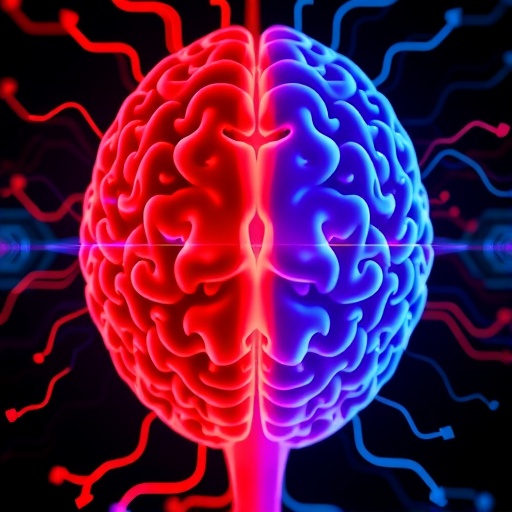In recent years, deep brain stimulation (DBS) has emerged as a beacon of hope in the treatment landscape of neurologic and psychiatric disorders previously deemed intractable. Among the most challenging conditions is treatment-refractory schizophrenia (TR-SZ), a severe form that resists conventional therapies and inflicts profound disability. With technological advancements enabling more precise neuromodulation, a groundbreaking study has investigated the ethical dimensions surrounding the use of DBS in TR-SZ, highlighting stakeholder perspectives that could reshape future clinical approaches.
Deep brain stimulation involves the implantation of electrodes into specific brain regions, delivering controlled electrical impulses to modulate dysfunctional neural circuits. Traditionally, DBS has attained significant success in movement disorders such as Parkinson’s disease (PD) and obsessive-compulsive disorder (OCD), where its ability to alleviate symptoms has been well documented. Its application to schizophrenia—a complex disorder marked by hallucinations, delusions, and cognitive disruptions—represents uncharted territory, both biologically and ethically.
The study, published in the forthcoming volume of BMC Psychiatry, undertook a comprehensive survey of 629 stakeholders encompassing individuals diagnosed with schizophrenia, patients with treatment-refractory Parkinson’s disease slated for DBS, caregivers of both patient groups, as well as participants in medical educational presentations. The underlying rationale was clear: to gauge enthusiasm, concerns, and ethical considerations around DBS as an experimental treatment option for TR-SZ, an area historically fraught with controversy due to the invasive nature of neurosurgical interventions.
One pivotal outcome revealed a striking trend—over 80% of respondents endorsed DBS as a viable treatment option for those grappling with severe, treatment-resistant schizophrenia. This consensus surfaced despite acknowledgment of the inherent surgical risks and the uncertain efficacy unique to psychiatric disorders. The stakeholders’ readiness to support DBS signals a paradigm shift in how experimental neuromodulation therapies are perceived, emphasizing patient autonomy and the urgent necessity for novel interventions.
Crucially, the study explored acceptable therapeutic response rates relative to the risks associated with DBS. Forty percent of participants indicated that benefits outweigh risks when the expected response rate stands between 41% and 60%. This threshold reflects a realistic appraisal of treatment outcomes, balancing hope against caution given the invasive procedure and potential side effects such as infection, cognitive changes, or mood disturbances.
Interestingly, approval rates for DBS varied depending on the clinical scenario presented. When asked about hypothetical patients spanning Parkinson’s disease, schizophrenia, and OCD, the audience expressed nuanced judgment. While 30% approved DBS for the Parkinson’s case, higher approval was observed for schizophrenia (52%) and OCD with psychotic features (56%). The highest endorsement—77%—was reserved for an OCD case involving compulsions with a risk of self-harm. This gradient of approval underscores the complex interplay of symptom severity, risk calculation, and perceived benefit across neuropsychiatric conditions.
The majority of audience members also expressed personal willingness to pursue DBS if confronted with treatment-refractory versions of PD, OCD, or schizophrenia. This personal stake reveals the profound desperation and hope embedded in treatment-resistant cases, highlighting the imperative for informed, transparent dialogue about emerging therapies. It also stresses the importance of ethical frameworks guiding patient consent and expectations.
Trial enrollment challenges remain a formidable barrier to advancing DBS for TR-SZ, partly due to stigma, mistrust of neurosurgical interventions, and the vulnerability of the population involved. The study’s approach—educating and then directly querying stakeholders—serves as a model for improving transparency and trust. By disseminating comprehensive information before soliciting opinions, researchers ensure more informed participation, fostering ethical research practices and potentially mitigating disparities in access to cutting-edge treatments.
This investigation also draws attention to the broader ethical questions underpinning neuromodulation for psychiatric disorders. Unlike movement disorders with clear biomarkers and predictable motor outcomes, psychiatric conditions involve complex behavioral, emotional, and cognitive dimensions. DBS’s influence on mood, personality, and decision-making raises profound questions about identity, autonomy, and consent, particularly in individuals whose cognitive capacities may be compromised by their illness.
Moreover, the stakes in schizophrenia are especially high given the social and functional impairments that often accompany the disorder. Enabling access to advanced neuromodulation therapeutics could radically transform outcomes for those currently trapped in cycles of disability and isolation. Ethically, this calls for balancing experimental innovation with rigorous safeguards to prevent exploitation or unintended consequences.
The continued development of DBS protocols tailored to the neural circuitry implicated in schizophrenia—such as targeting the nucleus accumbens or subthalamic nucleus—relies heavily on interdisciplinary collaborations between neurologists, psychiatrists, neurosurgeons, ethicists, and patient advocates. The synergy created by involving all stakeholders ensures that advancements are patient-centered and ethically grounded, avoiding past pitfalls where neurosurgical interventions were pursued without adequate consideration of societal, personal, and cultural implications.
Importantly, the study’s findings may serve as a catalyst for new clinical trials, encouraging researchers and funding bodies to prioritize this promising avenue. The ethical approval and enthusiasm from stakeholders can ease regulatory pathways and foster recruitment, ultimately accelerating the translational pipeline from bench to bedside.
As DBS technology continues to evolve, integrating closed-loop systems and adaptive stimulation informed by real-time neural activity, its therapeutic potential for psychiatric disorders like TR-SZ becomes ever more tangible. However, the journey ahead demands sustained attention to ethical vigilance, patient education, and equitable access to ensure that technological advances translate into genuine improvements in quality of life.
In conclusion, this landmark survey bridges the gap between experimental neurosurgery and patient-centered ethics, illuminating the path forward for deep brain stimulation in treatment-refractory schizophrenia. It amplifies the voices of those directly impacted, reveals nuanced perceptions of risk and benefit, and underscores a collective readiness to embrace novel therapies despite inherent challenges. This synthesis of scientific innovation and ethical scrutiny exemplifies the future of psychiatric neuromodulation, heralding a new chapter in the fight against the most intractable mental illnesses.
Subject of Research: Ethical considerations and stakeholder perspectives on deep brain stimulation as a treatment option for treatment-refractory schizophrenia.
Article Title: Ethical considerations of deep brain stimulation for treatment refractory schizophrenia: surveying stakeholders.
Article References:
Gault, J.M., Cascella, N., Moukaddam, N. et al. Ethical considerations of deep brain stimulation for treatment refractory schizophrenia: surveying stakeholders. BMC Psychiatry 25, 796 (2025). https://doi.org/10.1186/s12888-025-07128-0
Image Credits: AI Generated




